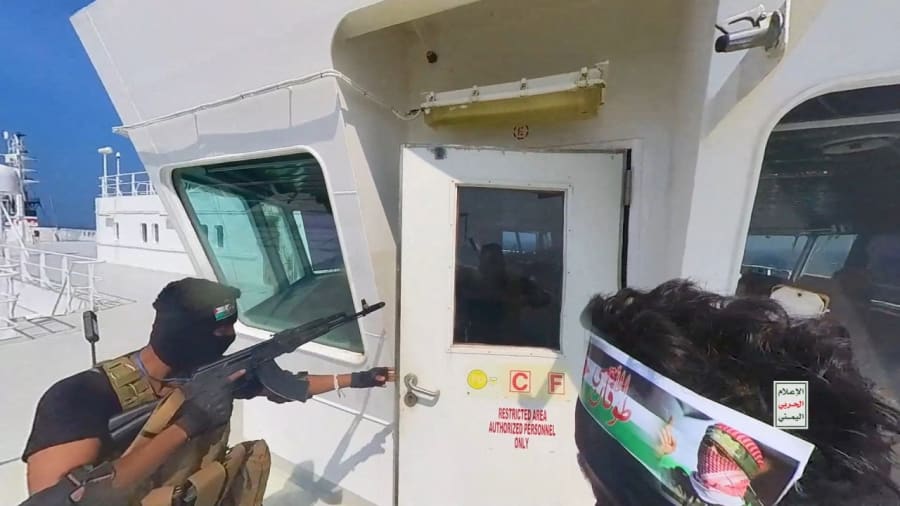Corporate Germany urges its government to join US-led naval force against Houthi threat on Red Sea
10% of Germany's exports and imports are in danger due to Houthi attacks on international vessels

The German industry community on Tuesday urged its government in Berlin to join the U.S.-led international naval force against the Iranian-backed Houthi terrorists in Yemen, who have stepped up their attacks on international shipping vessels in the Red Sea region since the Iron Swords War between Israel and Hamas began on Oct. 27.
Germany is the largest European economy and its trade-focused economy is dependent upon commercial traffic across the strategically important Red Sea via the Suez Canal.
The growing Houthi terror threat in the region has forced many international vessels to choose the longer and more expensive route via Africa, which takes an additional 10 days and increases fuel costs by approximately $1 million.
Wolfgang Niedermark, an executive board member of the Federation of German Industries, emphasized the importance of secure commercial routes for both Germany and the global economy.
"Securing maritime trade routes is not only in the interests of Germany's economy, it is a fundamental part of our national security," Niedermark said.
"The German government must now take responsibility without further hesitation and take the necessary steps, together with its allies, to protect the currently threatened sea routes in the Suez Canal and the Red Sea against the ongoing attacks, also militarily," Niedermark added.
The senior official stressed that the deteriorating security situation on the Red Sea could especially disrupt business sectors that rely on supplies from Asian manufacturers.
"Industries that rely on supplies of raw materials or components from Asia are particularly affected by the situation in the Red Sea. We are not yet aware of any disruptions to production, but they cannot be ruled out."
In December, the United States announced the formation of an international security force, Operation Prosperity Guardian, to confront the growing terror threat from the Houthi terror militia in Yemen.
While Washington is leading the multinational alliance, U.S. Defense Secretary Lloyd Austin emphasized at the time the need for international contribution.
“This is an international challenge that demands collective action,” Austin stated.
The international coalition reportedly includes some 20 nations, including Great Britain, the United States, France, Italy, Canada, Norway, Bahrain, and the Netherlands.
While Germany is one of Europe’s main military powers, Berlin has so far refrained from joining the American-led coalition against the Iranian-supported Houthi terror group. Following World War II, the German government has typically been reluctant to join international military coalitions.
On Wednesday, Berlin condemned the latest Houthi terror attack on international shipping in the Red Sea.
The German Foreign Ministry in Berlin emphasized that the actions of the Iranian-backed terror group “show that the Houthis are focused on escalating tensions against international merchant shipping and the ships of our partners and allies in the region.”
The U.S. Navy recently eliminated three boats with Houthi terrorists who attacked the Danish-owned and Singapore-flagged Maersk Hangzhou container ship in the Red Sea.
“The US Navy helicopters returned fire in self-defense, sinking three of the four small boats, and killing the crews. The fourth boat fled the area. There was no damage to US personnel or equipment,” the U.S. Central Command announced in its official statement.

The All Israel News Staff is a team of journalists in Israel.













